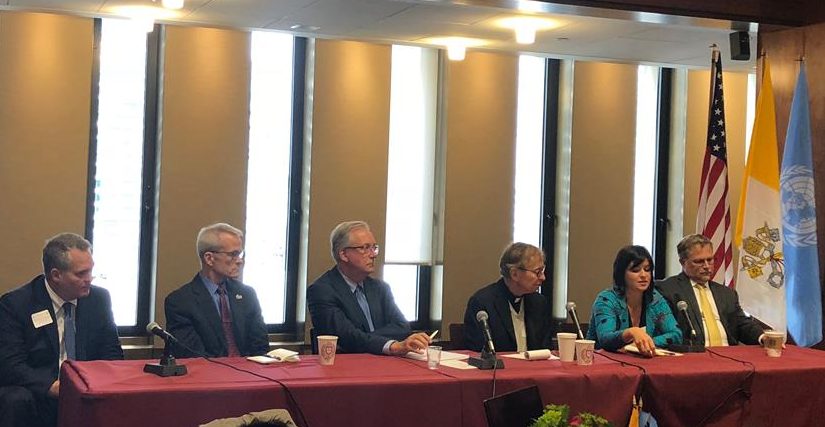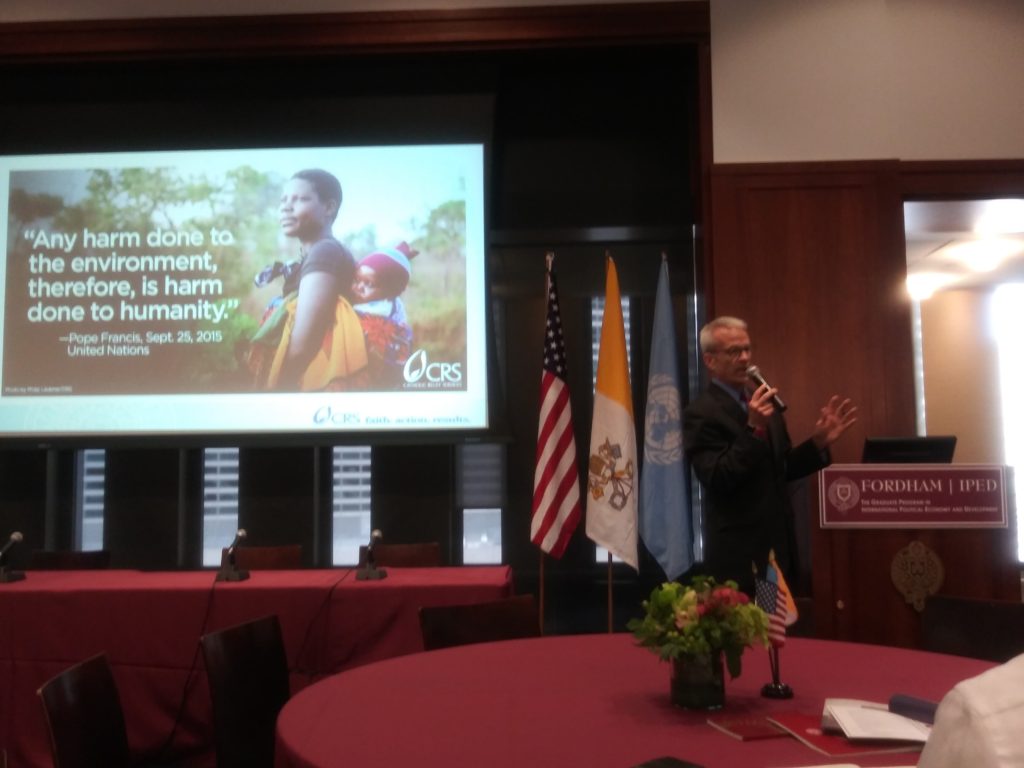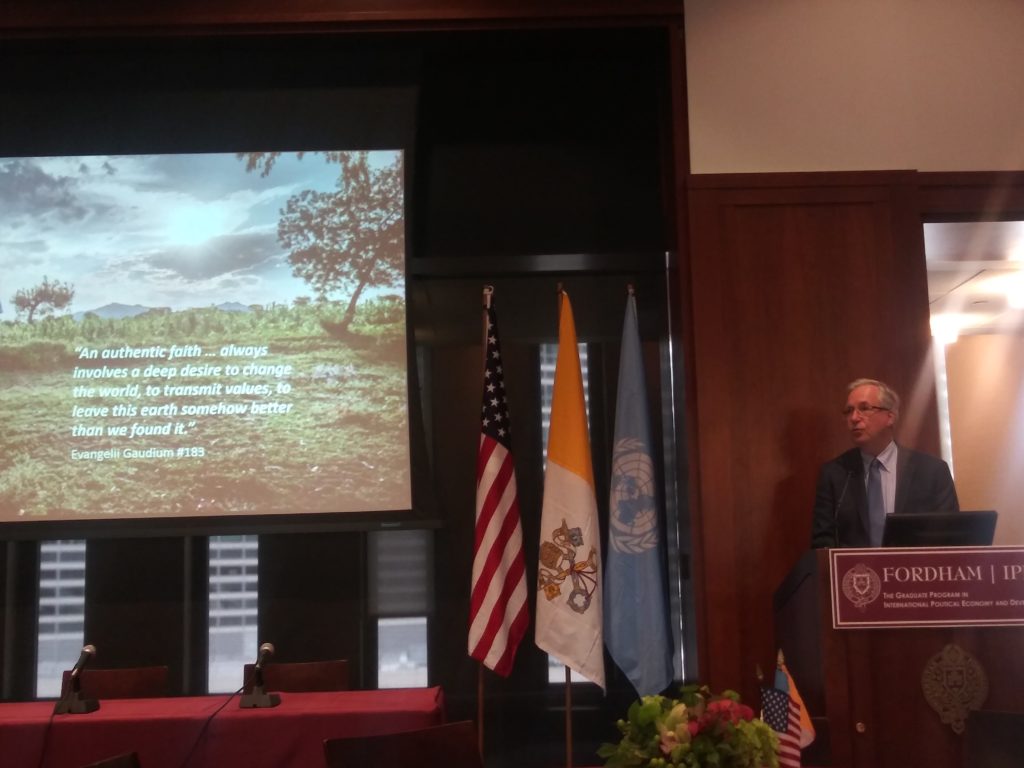
Last Friday, September 28, Fordham IPED and Centesimus Annus Pro Pontifice (CAPP) hosted a conference entitled “Reduce Hunger: Pope Francis’ Call for New Approaches” which tackled on the issue of global food security. The conference featured numerous scholars who talked about the different challenges, and innovation in ensuring food security for the world.
The conference started with a remark from Archbishop Bernardito Auza, Permanent Observer of the Holy See to the United Nations, who gave an overview of the perspective of Pope Francis with regards to food security. Archbp. Auza also drew from his own experience living in poverty in rural Philippines, as well as on his experience working for various Apostolic Nunciatures around the world. He most especially highlighted what Pope Francis thinks to be the causes of food insecurity, and the various principles that the Pope is suggesting in approaching the problem. Among the causes according to Pope Francis, he says, are: conflict, the throw-away culture, land-grabbing, and structures of poverty and exclusion; and among Pope Francis’ principles in approaching food insecurity includes: moral imperative to not eliminate the hungry in eliminating hunger, the necessity for a long-term plan and not just humanitarian intervention, and a conversion of people towards love. The Archbishop also made a point that the problem on food is not a resource issue – that the Earth can provide. Rather, the archbishop remarked, that the problem is a human issue – that as a society we don’t provide and distribute our resources.
Prof. Christopher Barrett then talked about the various challenges of global food security for the 21st century. According to him, we have accomplished so much but there are also a lot of challenges to be worried about – we are in the best of times and in the worst of times. He started by highlighting humanity’s accomplishments such as the dramatic decline in the stunting of children, and in the number of those living in poverty. However, new problems have also arisen such as the increasing number of people who are undernourished. He highlighted that the areas of challenges are in: lack of supply in vitamin-rich foods, climate change, conflict zones, poverty traps, and distribution networks.
As part of the panel discussion, Prof. Craig Gundersen gave an overview about food security at the local level particularly in the United States. He explained how the SNAP program help reach those who are in need by having eligibility requirements that are realistic, benefits levels that have real impact, effective mechanisms that limit corruption, and the autonomy and freedom of the beneficiaries.
Prof. Sarah Davidson Evanega highlighted her research and work on the impact of GMOs. She featured different interviews of different people from different parts of the world whose lives were changed for the better because of access to GMOs. She proposed that this is a justice issue – there’s an urgency to use science and technology to better the lives of people most especially the poor. She explained how many problems faced by farmers like climate change and pests can be addressed by using genetically modified crops.
Mr. Bill O’Keefe of Catholic Relief Services (CRS) also gave his insights on food security drawing from on-the-ground perspectives. He suggested the integrated approach of CRS that focuses on the vulnerable by targeting systems and structures rather than relying on individual problems. He also proposes the use of technology and of partnerships with the public and private sectors to really make an impact in communities and countries.

Dr. Daniel Gustafson gave a national policy perspective on food security by giving examples of successful programs in various countries. He used these examples to demonstrate that through transparent and effective programs, food security for the world can be achieved. He suggested that we learn from our previous experiences in order to have more efficient and effective programs most especially for the poor.

A lively panel discussion moderated by Rev. Richard Ryscavage, SJ then followed. The discussion questions ranged from private sector participation to utilization of technology; from market volatility to addressing the movements against GMOs. Overall, the discussions gave a sense that there is a lot to be optimistic about. Yet, there are still a lot of challenges to address. We cannot be satisfied by what we have accomplished but rather push forward and face the challenges to really attain food security for the world.
The conference ended with a wonderful rapporteur report from Mr. Brian Strassburger, SJ, who encapsulated the call to action of the whole conference into one word – magis. He said that after hearing from everyone in the conference, it is clear that we should not be content to what we have achieved but we need to go further, deeper, and more, into the challenges of food security. The day ended with some light refreshments and entertainment from the Creative Leaps International.




